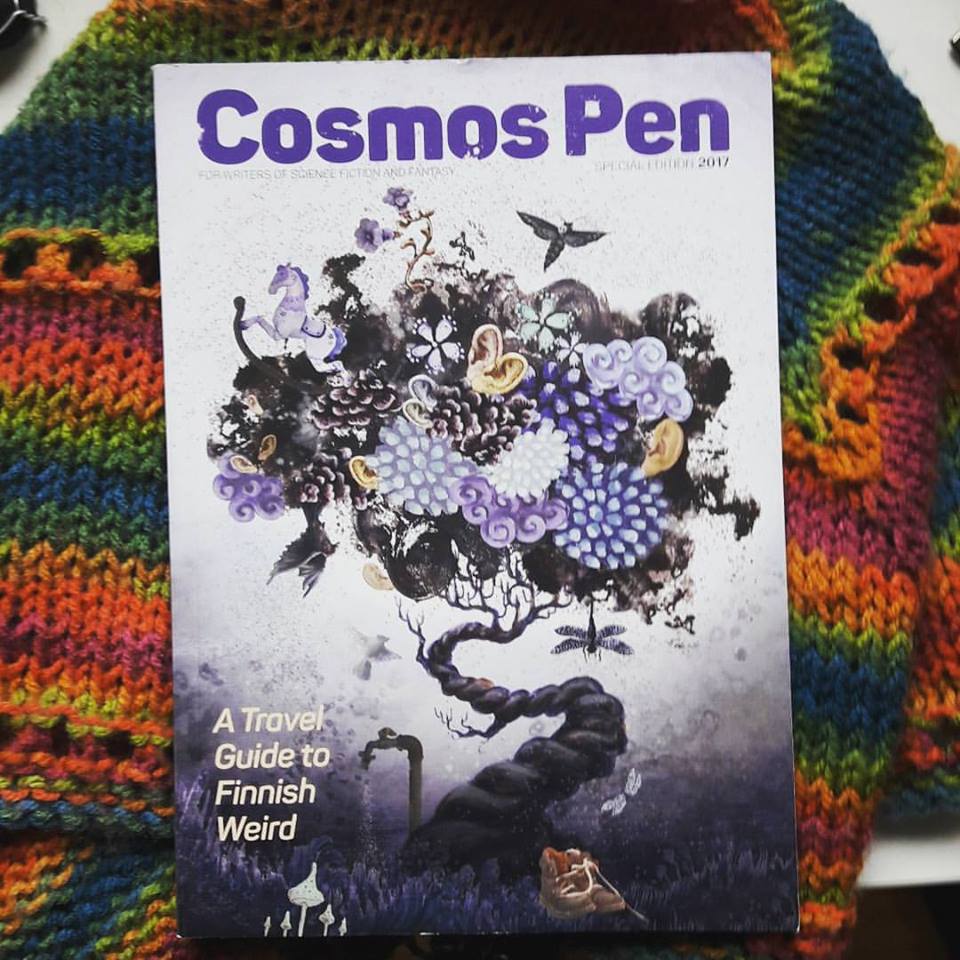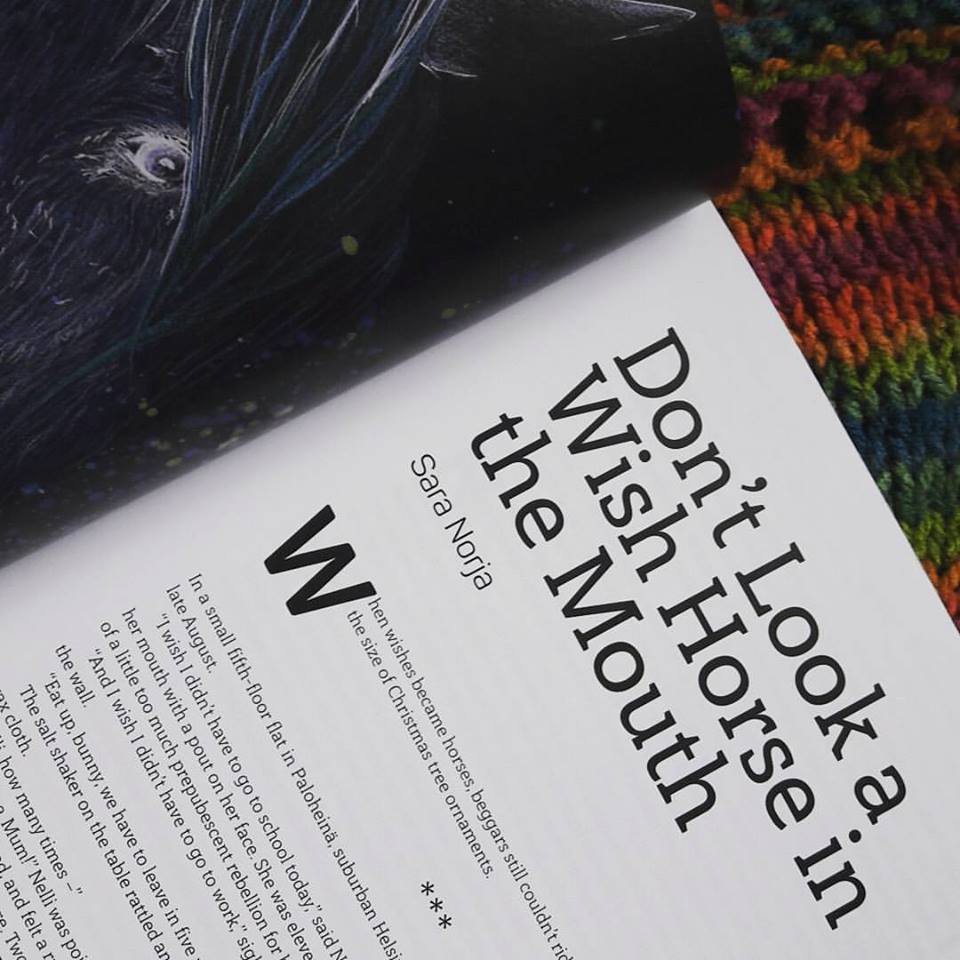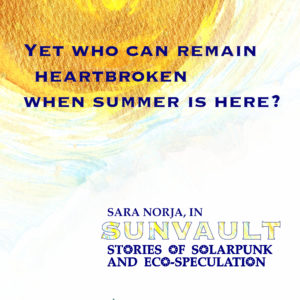I’ve been meaning to write this post for ages, and I feel a bit frustrated that I didn’t manage to do it earlier. It would’ve been more interesting to get posts from various stages of the revision process. I’ve kept a project diary of sorts in my notebooks, but it’s not the same as a post that draws things together. Better late than never, though!
This autumn has been far busier than I expected. I’ve been up to my eyelashes in PhD and related work, and there’s been travel and such things. Considering how much stuff I’ve had on my plate, I feel pleased and rather astonished that I’ve managed to get my novel this far in the past three months. I wish I could’ve been even more efficient, but alas, work takes precedence and self-care is important too. Still, I’ve managed to be stubborn and obsessed enough, and to love this book enough to work on it even in the midst of exhaustion.
But so. What has my process been with this novel?
Early history
BoBH is a novel whose original version was my first Nanowrimo novel, Dim Vanities, in 2008 (so long ago!). Similar concepts, similar relationships – but Dim Vanities was a completely different work from what BoBH is now. Anyway, BoBH has its roots in that first novel. I worked on Dim Vanities on and off (mostly off), till I decided to give it another go during Camp Nanowrimo in 2015. I changed the setting from our world to a secondary world, inspired by 17th-century Europe. I changed the main characters’ genders. I did a lot of worldbuilding. The project didn’t really take off during Camp, but in October 2015 I decided to give the project one final chance. I took my worldbuilding and ideas from Camp, came up with a plot skeleton based on the original Dim Vanities – and I wrote a completely new novel based on that. BoBH came alive during Nano and I loved writing it so much; it’s also the cleanest Nano draft I’ve ever written (and I’ve written quite a few Nano drafts).
After Nanowrimo 2015
I gave the draft to a friend to read; she gave me hope that it could actually become something, because she loved that 50k first draft so much. During 2016, I’ve basically been thinking about BoBH for much of the time. In January, I brought the first two chapters to my writing group and got feedback from them. I read through the first draft (printed out) at the start of the year, making copious notes. I tried starting intensive revisions during Camp Nanowrimo 2016, making use of Scrivener (of which more in a moment), but I was so swamped by stress and work that I didn’t get very far. Then, in July, I got back to it again. I made a revision plan and got quite a lot done in July; but it was only at the end of the month that I had a breakthrough. I had a brainstorming session with the friend who’d read the first draft. With her help, I got so many aspects of the magic and world sorted out that I felt I could start actual revisions. And thus started my two-month writing frenzy.
Flesh onto the bones
From August to early October, I added a little over 50,000 words to the original (50k) draft. An intensive revision, with so much added because in the Nanowrimo draft, I was interested in getting the basic story down but knew I didn’t have time to get everything in. The novel transformed so much during this time: gained flesh, gained life. I was working on it pretty much all my free time. I slept too little all the time, but I’d become obsessed and had so many of those glorious moments where the writing flows and magic happens. It was all rather amazing. Difficult, exhausting, but wondrous too. I’ve never written that much outside Nanowrimo before.
My tools
Scrivener has been essential for this project. In April I exported my novel draft into Scrivener and divided it into scenes. I hadn’t used Scrivener before so there was a bit of a learning curve, but I could immediately see it was going to be useful. I love this software so much. I don’t think it would work for me for first drafts, but for revisions, Scrivener is amazing. I love being able to divide things into scenes, because it makes it so much easier to look at the overall structure of the novel. Also, the colour-coding helps me feel I’m getting stuff done: taking a scene from “to-do” to “first draft” to “revised” was really fulfilling. Scrivener is just so great for me.
Another tool I use is far more old-fashioned: notebooks dedicated to this project, using a nice-to-write-with black pen. Simple but effective. When I get stuck, it often helps to write about my issues by hand. Handwriting really helps me focus and find solutions. I should perhaps find more efficient ways to organise my notebooks – because now, for instance, I have to go through them all and type up the essential things so that I can find them easier – but in a way I like the organic, all-in-one approach for notebooks.
***
Where am I now, revision-wise? Well. I just read through the second draft that I sent to beta readers around 10 October (I printed it out because it’s easier for me to read through that way). I took a couple of weeks’ break from the novel after sending it to readers – which I think was a good idea, because now I was able to read it with a little more detachment. Next up, I’m going to check all the comments from my awesome beta readers, and to draw up a revision plan based on them and my own revision thoughts.
I’m not doing Nanowrimo this year, which feels really weird. Instead, my goals for November are to finish the third draft revision of BoBH; to research literary agents; and to write my query letter and prepare for submissions. Scary things! I’ve never brought a novel to this stage before, although I’ve written many a novel draft and revised one of them further. It’s exhilarating to have made it this far.
I haven’t managed much in the way of poetry or short stories in the past couple of months. But I think BoBH is a project worth concentrating on.


